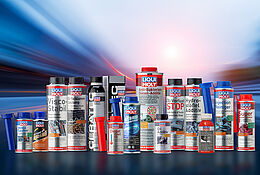Preparing boats properly for winter

For any skipper, the safe winterizing of boats at the end of the season is an essential part of preparing for the cold season. Since many boats are usually stored dry, this also means that you need to take care of your boat’s water piping. Otherwise, there is a risk of residual water in the cooling system freezing and then bursting the lines.
Marine Anti-Limescale mixing table
Marine Anti-Limescale is a concentrate and can therefore be diluted with water before use. Depending on the degree of calcification, we recommend the following mixing ratios:
| Calcification level | Marine Anti-Limescale | Water |
| Extreme calcification | 1 l | – |
| Advanced calcification | 1 l | 5 l |
| Slight calcification & preventively | 1 l | 10 l |
Environmental compatibility of Marine Antifreeze
Glycol-based frost protection agents are generally considered to be bad for the environment. But there is glycol, and there is glycol. For Marine Antifreeze, we use the biodegradable monopropylene glycol.
However, what’s important in these antifreeze liquids is not the glycol, but the corrosion protection used. We have developed our product to be more than 99 percent biodegradable. This ensures both engine protection and environmental compatibility.
Marine Antifreeze mixing table
Marine Antifreeze is a concentrate and can therefore be diluted with water before use. Depending on the required frost protection, we recommend the following mixing ratios:
| Frost protection down to | Marine Antifreeze | Water |
| -32 °C | 1 l | – |
| -26 °C | 1 l | 200 ml |
| -15 °C | 1 l | 800 ml |
Marine Anti-Limescale and Marine Antifreeze can of course also be used permanently. Even during the season in water, they ensure an intact cooling system and a stable operating temperature of the engine, protecting it from overheating.







